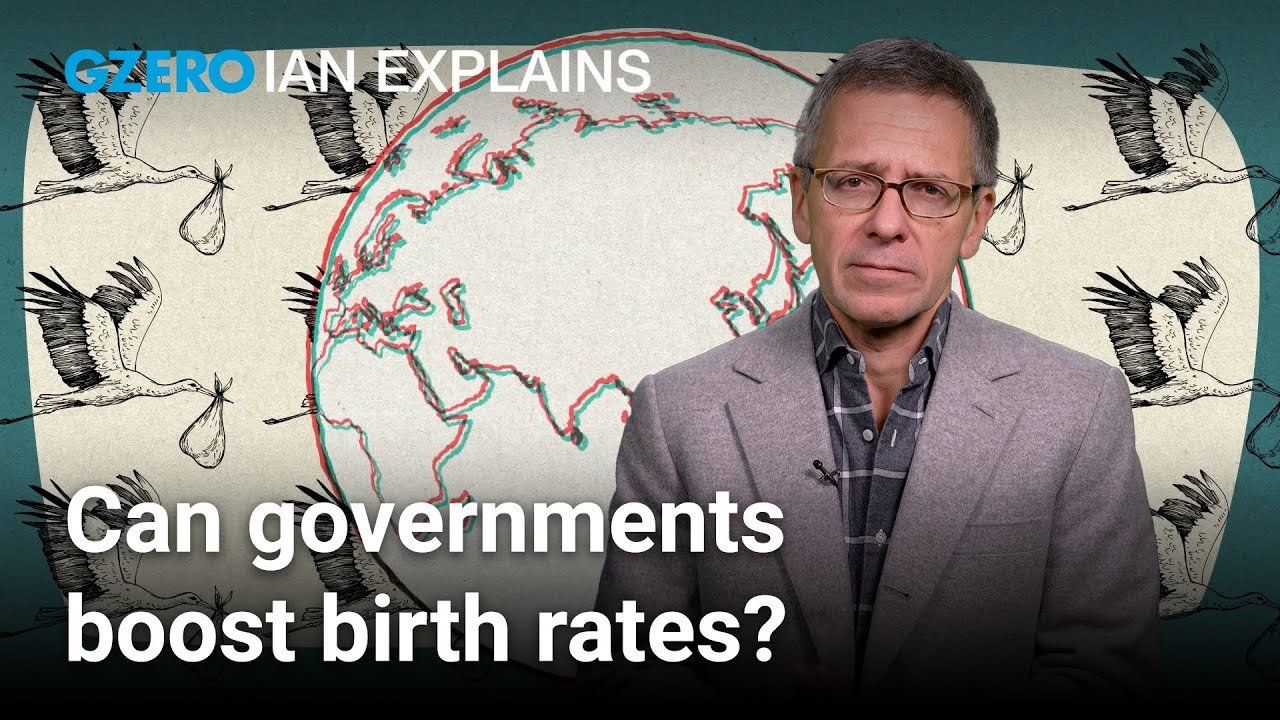
The world is quietly being reshaped by a demographic time bomb: Birthrates are plummeting, and the global population is rapidly aging. By 2050, one in six people will be over 65. While the overall population is still increasing—driven by growth in developing countries like Nigeria and Pakistan—experts predict it will peak in about 60 years. The shift to depopulation will have huge implications for the future of work, healthcare, and retirement. So what can we do about it? On Ian Explains, Ian Bremmer breaks down the different strategies governments are using to try to get people to have more kids, particularly in East Asia, where the population crisis is severe. Countries like Japan and South Korea have tried tax incentives, expanded parental leave, subsidized child care, and even matchmaking. But nothing is working. Is a slow-moving crisis inevitable? Or, instead of turning back the demographic clock, is it time to start rethinking the future of aging?
GZERO World with Ian Bremmer, the award-winning weekly global affairs series, airs nationwide on US public television stations (check local listings).
New digital episodes of GZERO World are released every Monday on YouTube. Don't miss an episode: subscribe to GZERO's YouTube channel and turn on notifications (🔔).